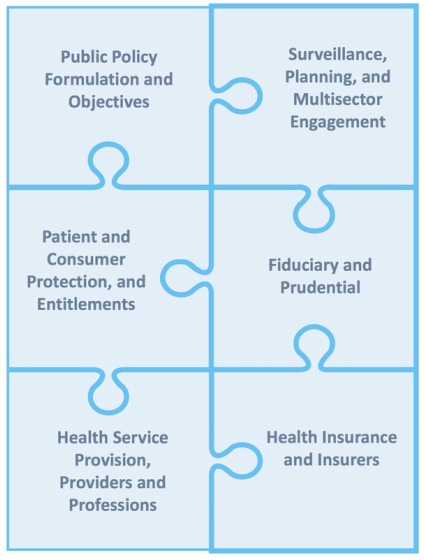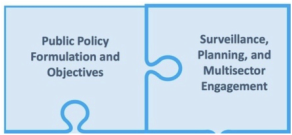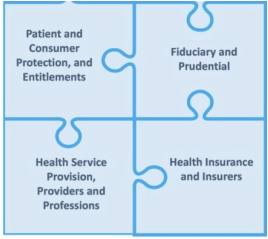Strengthening Stewardship and Regulation
|
"Stewardship refers to the wide range of functions carried out by [health authorities] governments as they seek to achieve national health policy objectives. In addition to improving overall levels of population health, objectives are likely to be framed in terms of equity, coverage, access, quality, and patients' rights. National policy may also define the relative roles and responsibilities of the public, private and voluntary sectors - as well as civil society - in the provision and financing of health care… It will include: maintaining the strategic direction of policy development and implementation; detecting and correcting undesirable trends and distortions; articulating the case for health in national development; regulating the behaviour of a wide range of actors - from health care financiers to health care providers; and establishing effective accountability mechanisms. Beyond the formal health system stewardship means ensuring that other areas of government policy and legislation promote - or at least do not undermine - peoples' health..." (WHO).
A key instrument of stewardship, together with policy formulation and legislation, is the regulatory function, which operationalizes the policy directions of stewardship setting the rules for all actors of the health system. In our work (in line with many others) we distinguish and work in two core areas of Stewardship: Sector Intelligence (policy formulation, planning and strategic information collecting and management), and Sector Regulation. Both areas are critical for the performance of the health system. Strengthening the capacity of health authorities, ministries of health, and specialized agencies on sector intelligence and regulation is a key component of systems transformations worldwide. CHD works and provides advice on both as a core component of improving Health Systems Strengthening. |
Strengthening Sector InteligenceThe capacity of health authorities (Governments, Health authorities, regulator, and others) supported by information and analytics capabilities is central to the development and performance of the health system in protecting and improving health, financial protection and satisfaction and dignity of care. This includes mind-set and capabilities to focus on actions not only in the health care sector but, in engaging in and with all policies in the economy to create better health for all. Critical areas of capabilities should include, among others:
CHD works and advice overall government authorities, health system authorities and leaders and key actors on the importance of strengthening the Sector Intelligence Function on how to actually do it. |
Sector RegulationRegulation, in all its dimensions (licensing, accreditation, financial, prudential, consumer protection, care and professions quality, food, pharma, medical devices, and other), is a key instrument of effective stewardship. Many countries exercise the regulation functions directly through the central government (e.g. the Ministry of Health that directly acts as regulator) or, increasingly, many separate parts of the regulation in independent public entities that relate to but are independent of the central government administration.
Achieving effective regulation, one that will maximize the wellbeing of the population, requires, among other characteristics:
Policy makers and system leaders face multiple options regarding regulation governance, developing capabilities, and specific regulatory issues. Key decisions include, among many others:
CHD works and advice overall government authorities, health system authorities and leaders and key actors on the what is required for effective regulation and on the how-to building and implementing regulatory capacity on health insurance, health service, provision, and health related industries, including transition strategies for implementation. |




